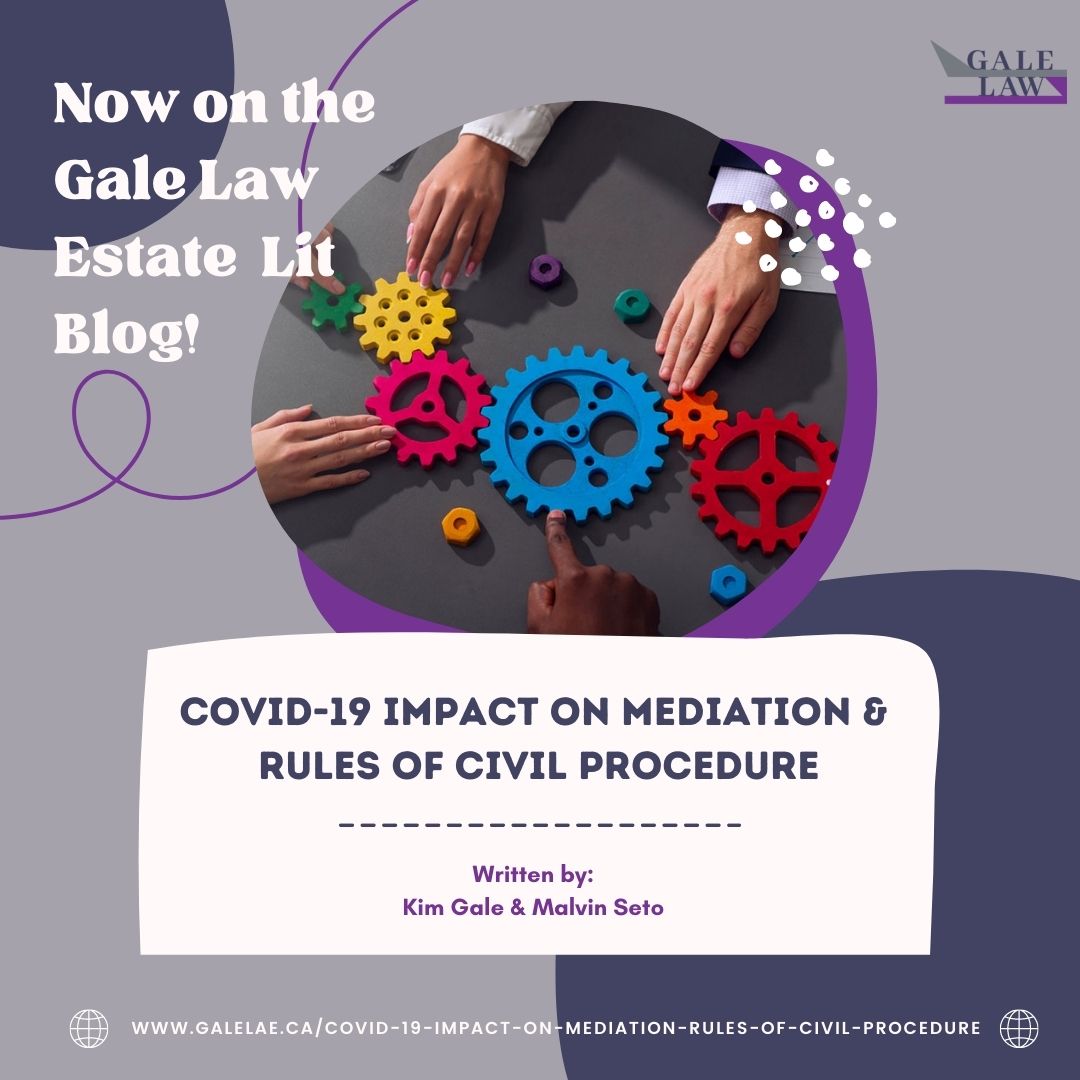COVID-19 Impact on Mediation & Rules of Civil Procedure

As COVID-19 continues to cause uncertainty and while impacting the economy and our lives so deeply, many predict that this global pandemic will bring an increase in matters being litigated.
“My experience has been, in my practice, that significant global events are almost always followed by litigation, and I expect that COVID is no exception,” says Linda Plumpton of Torys LLP, the Canadian Law Awards Litigator of the Year for 2020. She goes on to say: “You look at the tech bubble bursting in the early 2000s, then the Great Recession in 2008 I
expect that the COVID trend will be similar, and we’re already seeing that play out in a number of areas. My own view is that we’re really just on the cusp of what will probably be years of litigation to follow.”
This is supported by Statistics Canada, which documents the number of civil court cases per year in Canada and in the provinces individually. For Ontario, prior to the Great Recession in 2008, there were 259,374 initiated cases in 2007-2008. In the two years that followed, initiated cases went up to 276,396 and then to 283,378. With an expected rise in litigation, mediation should be a considered forum for parties to resolve their legal matters before trial.
Mandatory mediation: Estates, trusts and substitute decisions
Rule 24.1.01 of the Ontario Rules of Civil Procedure (the Rules) states: “This Rule provides for mandatory mediation in specified actions, in order to reduce cost and delay in litigation and facilitate the early and fair resolution of disputes.”
These specified actions are further explained in Rule 75.1. In fact, for the City of Ottawa, the City of Toronto and the County of Essex, mediation is already mandatory for estates, trusts and substitute decision matters under Rule 75.1.
Rule 75.1 states that, except in a contested Passing of Accounts, the applicant shall make a motion, in the same way as under R. 75.06 (which is an Application or Motion for Directions), seeking directions for the conduct of the mediation. Rule 75.1.05(2) states that the Notice of Motion for mediation directions is to be served within 30 days after the last day for serving a Notice of Appearance, and the motion may be combined with other motions.
Changes due to COVID-19: September 2021
The Rules largely remain the same for mediation with some interesting changes allowing for remote mediation. Prior to these changes, mediation was in person. This was an accepted practice, and any other form of attendance may have required a judge’s permission or threatened to halt settlement discussions. Now the reference to in person has been revoked, allowing for virtual/remote mediation. A necessary change to permit mediations to continue as we navigate this pandemic.
On Sept. 21, 2021, the definition of “designated party” in Rule 75.01.03 will be amended by striking out “in person.” (0. Reg. 526/21, s. 3)
On Sept. 1, 2021, Rule 75.l.05(4)(d) was revoked. It originally stated that on hearing of the motion under rule 75.1.05, the motion seeking direction respecting conduct of the mediation, the court may direct: “d) which parties are required to attend the mediation session in person, and how they are to be served;” The following is now substituted: “(d) which parties are required to attend the mediation session, the method of attendance and the manner of service;” (See: 0. Reg. 526/21, s. 4.)
Mediators should also note the change to sub rule 75.1.07(7) which states: “The mediator shall, immediately on being chosen or assigned, fix a date for the mediation session and shall, at least 20 days before that date, serve on every designated party a notice (Form 75.1B) stating the place, date and time of the session and advising that attendance is obligatory.” On Sept,1, subrule 75.1.07 (7) of the Regulation was amended by adding “and the method of attendance” after “the place, date and time of the session.” (0. Reg. 526/21, s. 5)
Benefits of mediation
The benefits to mediation are countless. They include allowing clients greater involvement in the agreed upon settlement, confidentiality and certainty of the result. The main benefit to mediation is that clients will have an opportunity to settle and move on to the next chapter in their lives. Even if the parties do not come to a settlement, mediation allows for both sides to better understand the adverse position which increases the likelihood of settlement later in the litigation.
In times of uncertainty like a pandemic, mediation brings certainty. Now that mediations are permitted to be remote, they have become more accessible, and more parties should consider mediation even if it is not mandatory for them.
